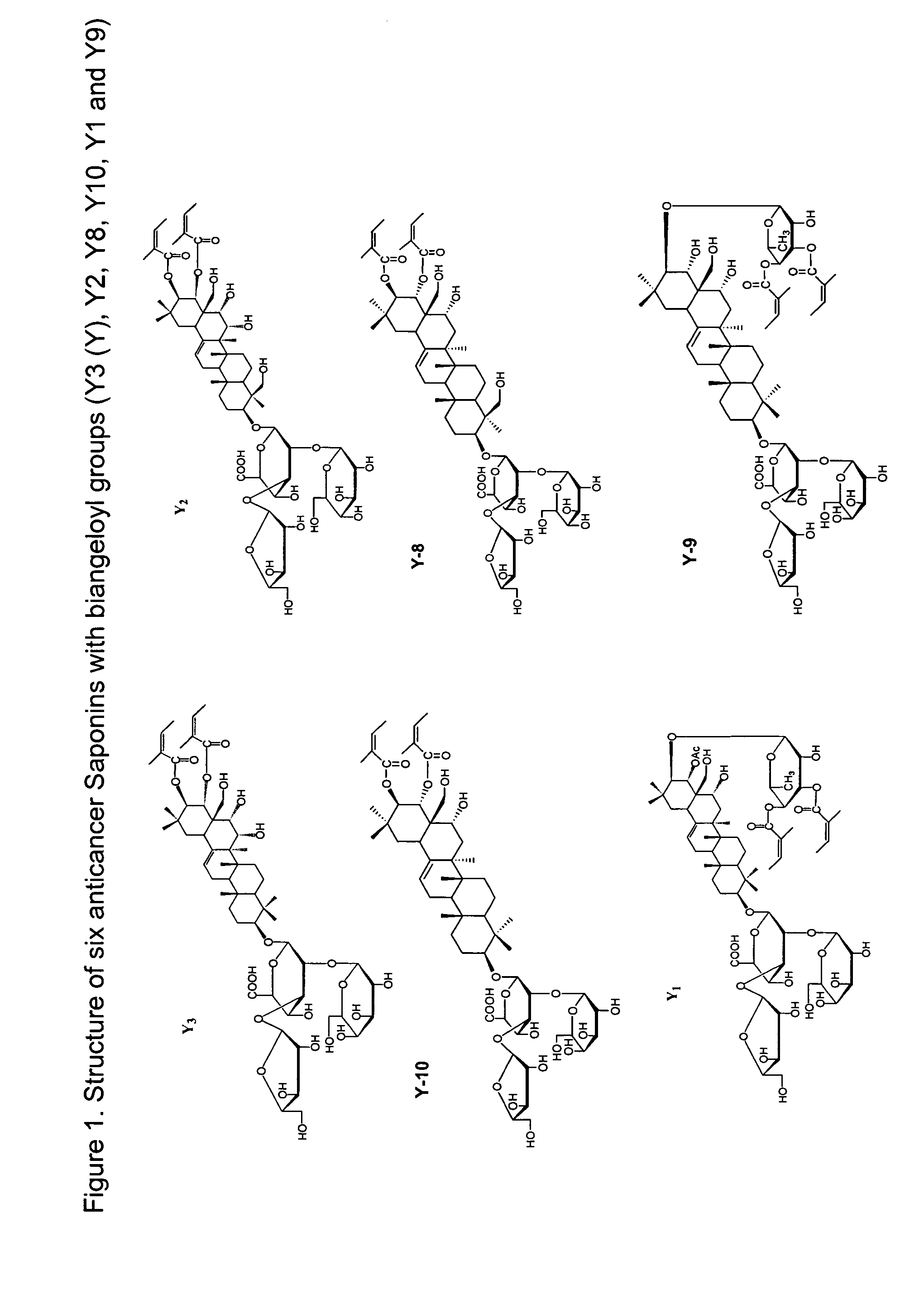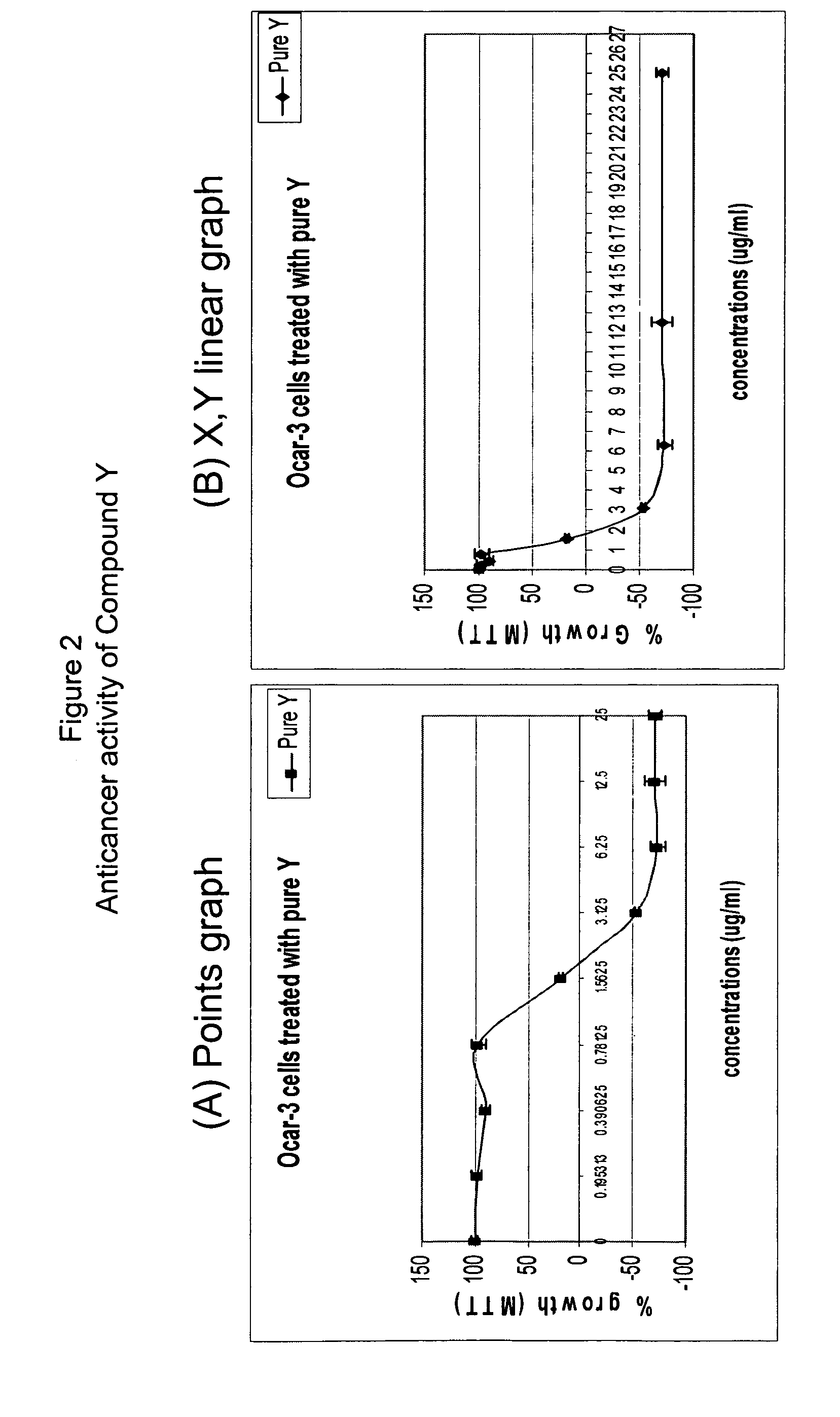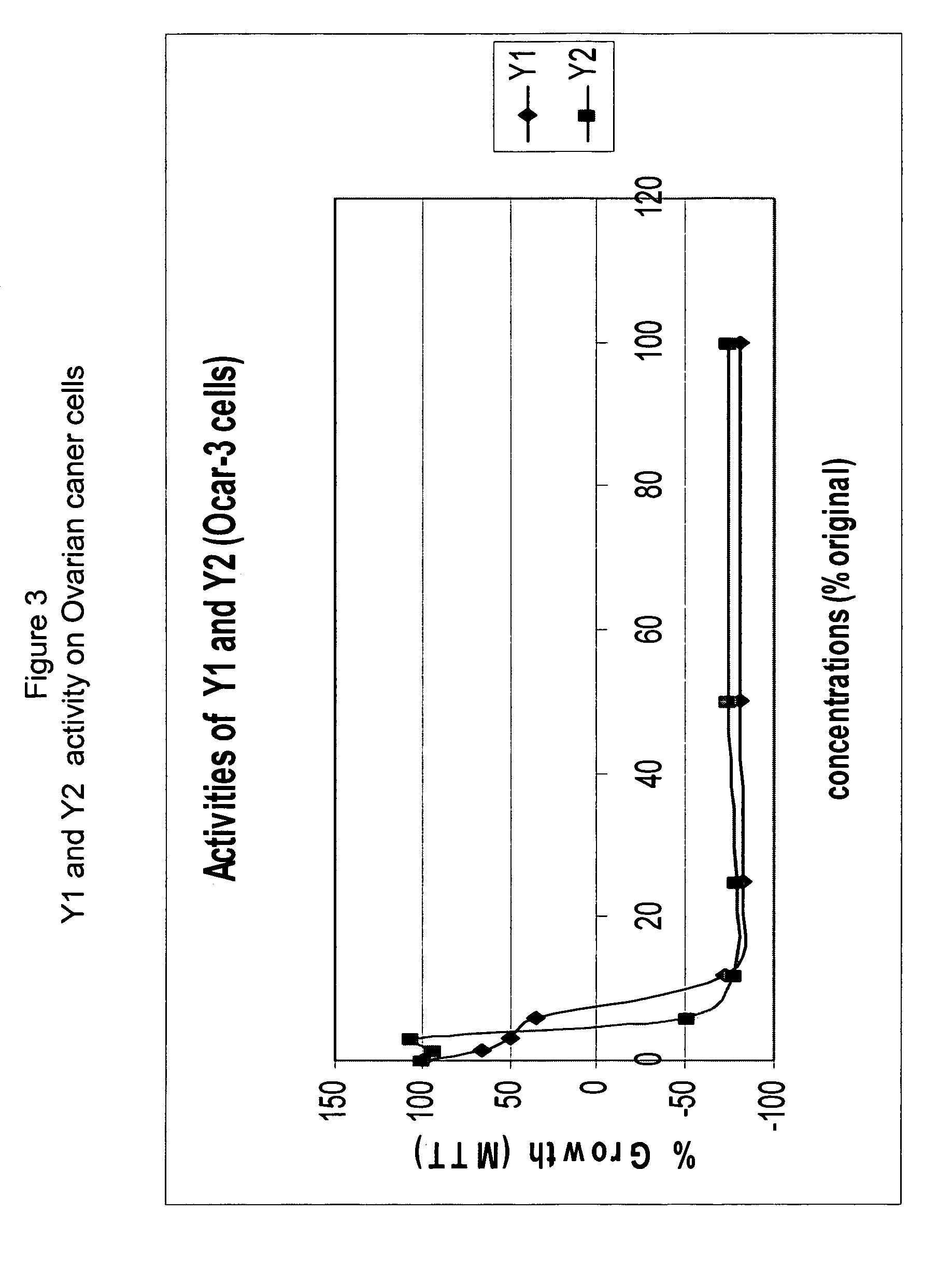Anticancer biangeloyl saponins
a technology of biangeloyl saponin and anticancer, which is applied in the direction of biocide, plant/algae/fungi/lichens ingredients, drug compositions, etc., can solve the problem of no cost-effective screening tes
- Summary
- Abstract
- Description
- Claims
- Application Information
AI Technical Summary
Benefits of technology
Problems solved by technology
Method used
Image
Examples
experiment 1
Herb Extraction
[0196](a) extracting Xanthoceras sorbifolia powder of husks or branches or stems or leaves or kernels or roots or barks with organic solvent at ratio of 1:2 for 4-5 times for 20-35 hours each time to form an organic extract; (b) collecting the organic extract; (c) refluxing the organic extract for 2-3 times at 80° C. to form second extracts; (d) removing the organic solvent from the second extract; and (e) drying and sterilizing the extract to form a Xanthoceras sorbifolia extract powder.
experiment 2
Analysis of Xanthoceras Sorbifolia Extract Components by HPLC Chromatography
Methods
[0197]HPLC. A C-18 reverse phase μbondapak column (Water P / N 27324) was equilibrated with 10% acetonitrile, 0.005% Trifluoroacetic acid (equilibration solution). An extract of Xanthoceras sorbifolia prepared using the methods described in Experiment 1 was dissolved in equilibration solution (1 mg / ml) before applying into the column. 20 ug of samples was applied into column. Elution conditions: Fractions were eluted (with flow rate 0.5 ml / min.) with acetonitrile gradient from 10% to 80% in 70 min, and then remains at 80% for 10 min. The acetonitrile concentration then decreased to 10% and remained at 10% for 25 min. The fractions were monitored at 207 nm and recorded in chart with a chart speed of 0.25 cm / min and with OD full scale of 0.128.
[0198]Instruments. Waters Model 510 Solvent Delivery System; Waters 484 tunable Absorbance Detector; Waters 745 / 745B Data Module.
[0199]Absorbance analysis. The abso...
experiment 3
Determination of the Cell-Growth Activity Effected by Xanthoceras Sorbifolia Extract with Cancer Cells Derived from Different Human Organs using MTT Assay
Methods and Materials
[0202]Cells. Human cancer cell lines were obtained from American Type Culture Collection: HTB-9 (bladder), HeLa-S3 (cervix), DU145 (prostate), H460 (lung), MCF-7 (breast), K562 (leukocytes), HCT116 (colon), HepG2 (liver), U2OS (bone), T98G (brain) and OVCAR-3 (ovary). Cells were grown in culture medium (HeLa-S3, DU145, MCF-7, Hep-G2 and T98G in MEN (Earle's salts); HTB-9, H460, K562, OVCAR-3 in RPMI1640; HCT-116, U2OS in McCoy-5A) supplemented with 10% fetal calf serum, glutamine and antibiotics in a 5% CO2 humidified incubator at 37° C.
[0203]MTT assay. The procedure for MTT assay followed the method described in (Carmichael et al., 1987) with only minor modifications. Cells were seeded into a 96-wells plate at concentrations of 10,000 / well (HTB-9, HeLa, H460, HCT116, T98G, OVCAR-3), 15,000 / well (DU145, MCF-7, ...
PUM
| Property | Measurement | Unit |
|---|---|---|
| absorption wavelength | aaaaa | aaaaa |
| absorption wavelength | aaaaa | aaaaa |
| flow rate | aaaaa | aaaaa |
Abstract
Description
Claims
Application Information
 Login to View More
Login to View More - R&D
- Intellectual Property
- Life Sciences
- Materials
- Tech Scout
- Unparalleled Data Quality
- Higher Quality Content
- 60% Fewer Hallucinations
Browse by: Latest US Patents, China's latest patents, Technical Efficacy Thesaurus, Application Domain, Technology Topic, Popular Technical Reports.
© 2025 PatSnap. All rights reserved.Legal|Privacy policy|Modern Slavery Act Transparency Statement|Sitemap|About US| Contact US: help@patsnap.com



